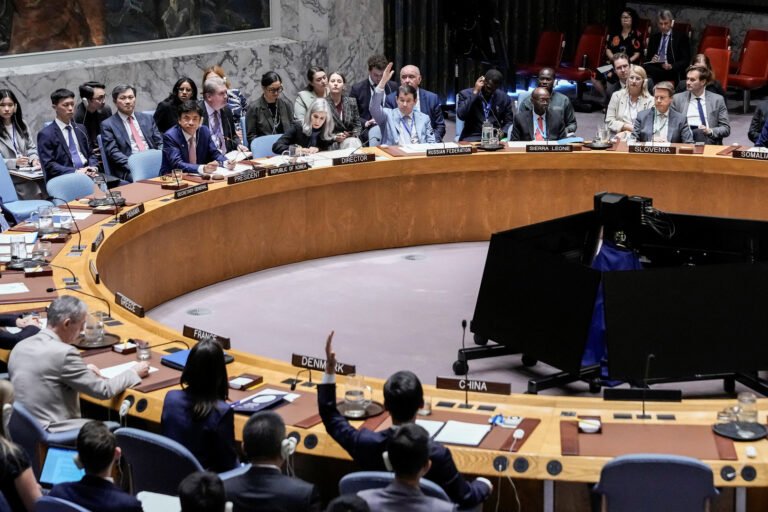
Contents
UN Sanctions on Iran to be Reimposed: A New Era of Tensions
The United Nations sanctions on Iran are set to be reimposed on Saturday, September 28, 2025, after a Russian-Chinese bid to delay them failed at the Security Council. The reimposition of sanctions is a result of the efforts by Britain, France, and Germany, known as the E3, to reinstate the sanctions. In response, Tehran has warned that the West will bear responsibility for any fallout. This move is expected to escalate tensions between Iran and the Western nations, potentially affecting global politics, economies, and security.
The reimposition of UN sanctions on Iran is a significant development that answers the who, what, where, when, why, and how of this critical situation. The parties involved are the United Nations, Iran, Britain, France, Germany, Russia, and China. The event is the reimposition of UN sanctions on Iran, which will occur in the United Nations Security Council in New York. The timing of this event is Saturday, September 28, 2025, after a failed attempt by Russia and China to delay the sanctions. The reason behind this move is the efforts by Britain, France, and Germany to reinstate the sanctions. The method by which this was achieved was through a vote at the Security Council, where the Russian-Chinese bid to delay the sanctions was rejected.
Background and Context
The reimposition of UN sanctions on Iran is a complex issue with a rich history. The sanctions were originally lifted as part of the Joint Comprehensive Plan of Action (JCPOA), also known as the Iran nuclear deal, in 2015. However, the US withdrew from the deal in 2018 and reimposed its own sanctions on Iran. The latest development is a result of the E3’s efforts to reinstate the UN sanctions, which is expected to have far-reaching consequences. The key highlights of this situation include:
* The reimposition of UN sanctions on Iran is expected to escalate tensions between Iran and the Western nations.
* The move is a result of the efforts by Britain, France, and Germany to reinstate the sanctions.
* Russia and China attempted to delay the reimposition of sanctions but failed.
* Tehran has warned that the West will bear responsibility for any fallout.
Reactions and Implications
The reactions to the reimposition of UN sanctions on Iran have been mixed. While the E3 has welcomed the move, Iran has warned of severe consequences. The implications of this development are significant and far-reaching. Some of the potential consequences include:
* Escalation of tensions between Iran and the Western nations.
* Potential impact on global politics, economies, and security.
* Effects on the Iranian economy and the livelihoods of its citizens.
* Possibility of Iran withdrawing from the JCPOA and restarting its nuclear program.
As stated by a spokesperson for the Iranian government, “The West will bear responsibility for any fallout from the reimposition of sanctions. We will not be intimidated by these actions and will take all necessary measures to protect our interests.” On the other hand, a spokesperson for the E3 stated, “The reimposition of sanctions is a necessary step to ensure that Iran complies with its international obligations. We will continue to work towards a peaceful resolution of this situation.”
Global Response and Future Directions
The global response to the reimposition of UN sanctions on Iran has been significant. The international community is watching the situation closely, with many nations calling for restraint and diplomacy. The future directions of this situation are uncertain and will depend on various factors, including the actions of the parties involved. Some of the potential future directions include:
* Escalation of tensions leading to conflict.
* Diplomatic efforts to resolve the situation.
* Economic consequences for Iran and the global economy.
* Impact on regional and global security.
In terms of data, the reimposition of UN sanctions on Iran is expected to have significant economic consequences. According to estimates, the Iranian economy could shrink by up to 10% as a result of the sanctions. Additionally, the global economy could also be affected, particularly in terms of oil prices and trade.
Conclusion and Recommendations
In conclusion, the reimposition of UN sanctions on Iran is a significant development with far-reaching consequences. The situation is complex and uncertain, with various factors at play. To resolve this situation, it is recommended that the parties involved engage in diplomatic efforts to find a peaceful solution. Additionally, the international community should work together to mitigate the economic and humanitarian consequences of the sanctions.
Conclusion: The reimposition of UN sanctions on Iran is a critical situation that requires careful consideration and diplomatic efforts to resolve. The parties involved must work together to find a peaceful solution and mitigate the consequences of the sanctions. The international community should also play a role in promoting diplomacy and reducing tensions.
Keywords: UN sanctions, Iran, Britain, France, Germany, Russia, China, JCPOA, nuclear deal, tension, diplomacy, economy, security, global politics.
Hashtags: #UNSanctions #Iran #Tensions #Diplomacy #Economy #Security #GlobalPolitics #JCPOA #NuclearDeal.
Source link